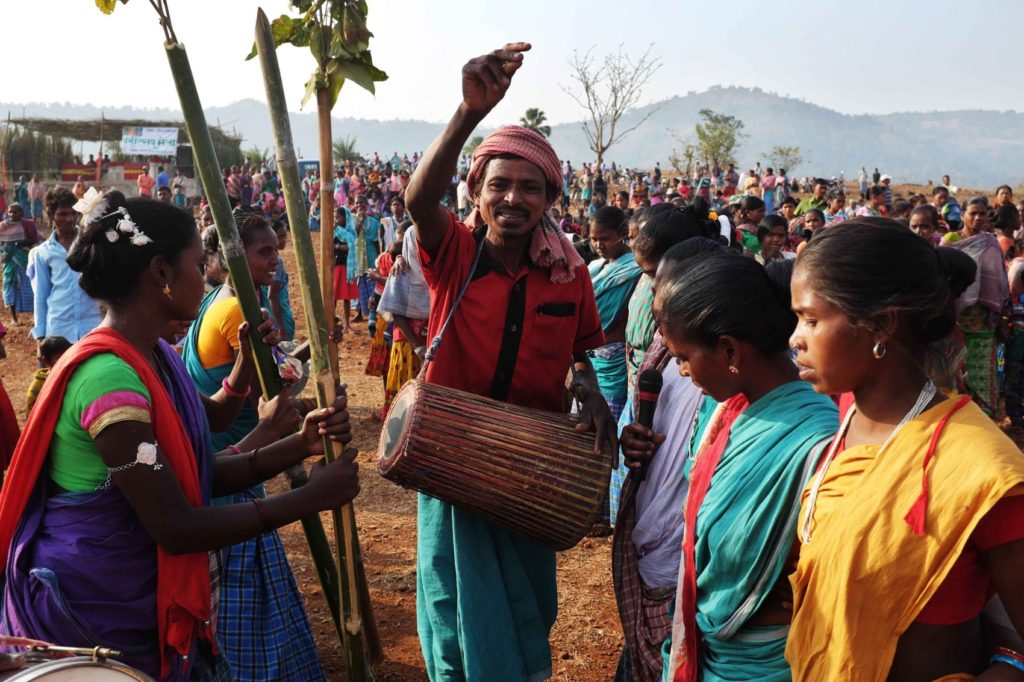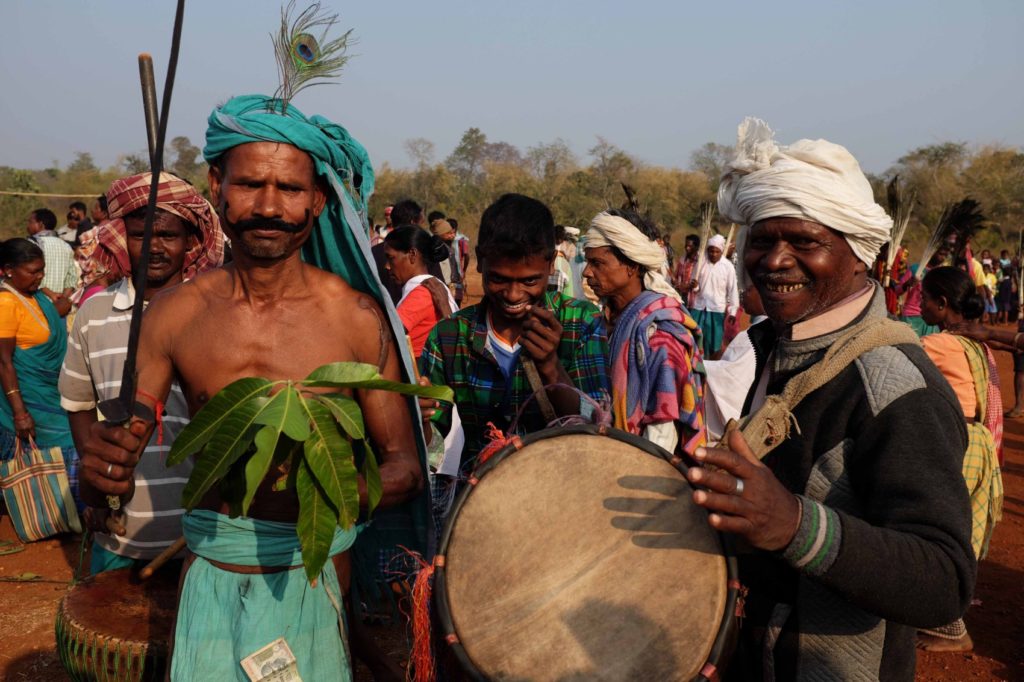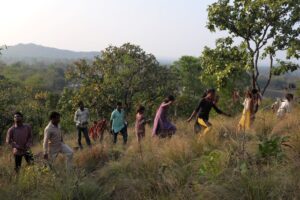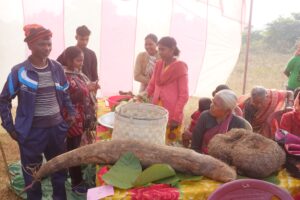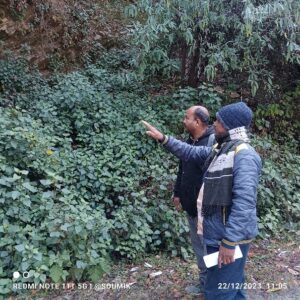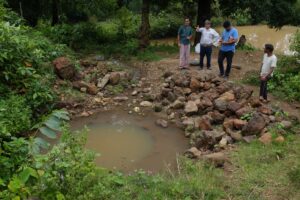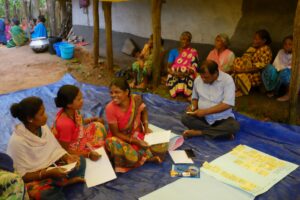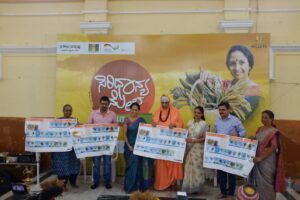On the 6th of February 2019 Jharkhand Vikas Parishad (Using Diversity Partner Organisation), Pilathus Malto (UD fellow) and members of the Mal Paharia community of Littipara organised a festival to celebrate the wild food and traditional seeds crops and food of the Mal Paharias. The festival was held at Bada Pokharia village. The purpose of the program was to celebrate the dietary diversity of the Mal Pahrias and raise awareness about the variety of uncultivated food items and traditional crops consumed by the Mal Paharias and their numerous benefits.
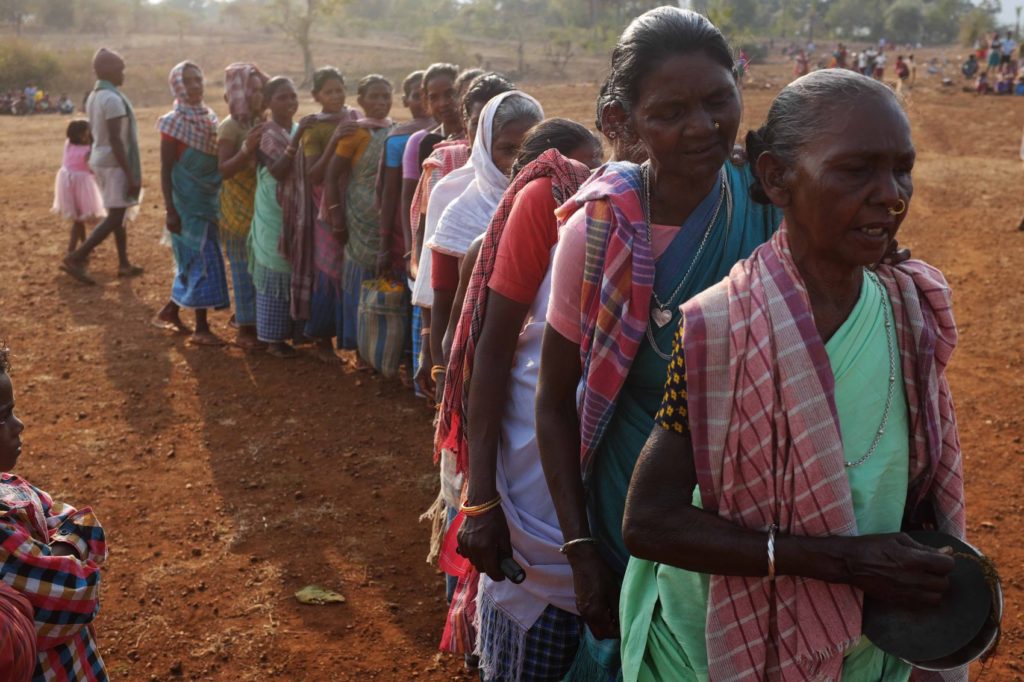
Villagers from Chotta Pokharia, Bada Pokharia, Makhni Pahar, Karodoli, Gadh Pahari and Kathal Para exhibited a variety of wild and uncultivated food items alongside traditional seeds, and cultivated fruits and vegetables.
The variety of wild tuber, fruits, flowers and leafy vegetables on display included – Nappe Kappa, Dadh Singla / Jungli Ool, Kep Singla, Pandgo Alli, Churke, Phandgo, Kelli, Makdi, Katcho, Ilkirdu/Ber, Talmi, Kiro/Bhelwa, Sajna Sad, Madgi/Mahua.
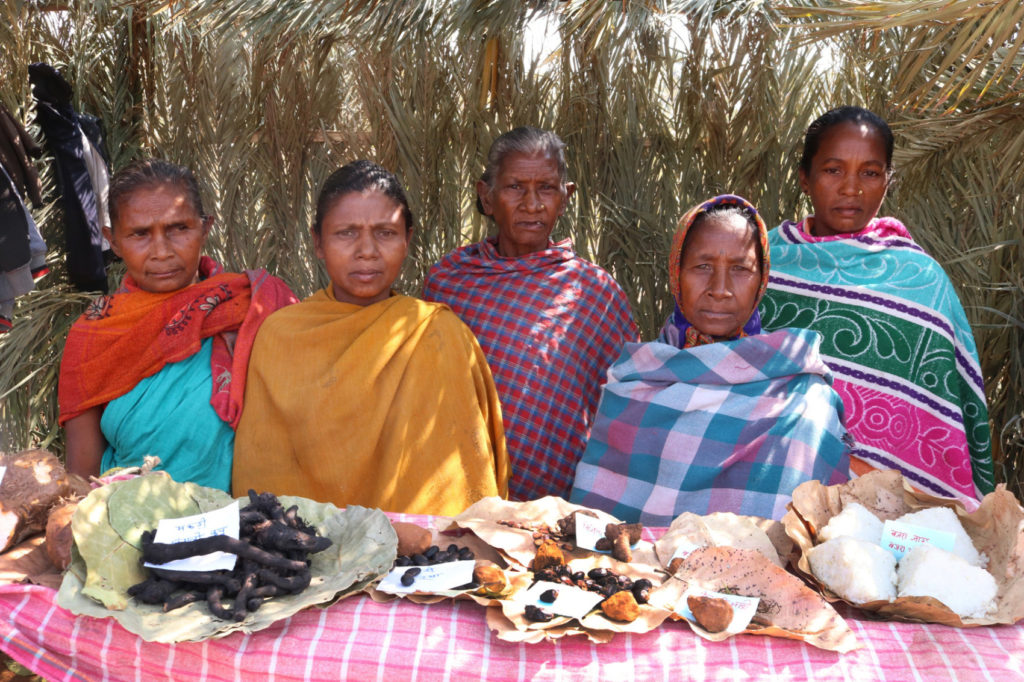
The traditional seeds and cultivated fruits and vegetables on display included – Kuse/Kursa, Tealo/Bajra, Kohda (Pumpkin), Gangi (Makai Jhumdi), Papita, Kathare (Kathal/Jackfruit), Hatah/Sharifa, Kurti, Ture/Rahar, Kosre, Kakro/Sutri, Kesdu Dhan.
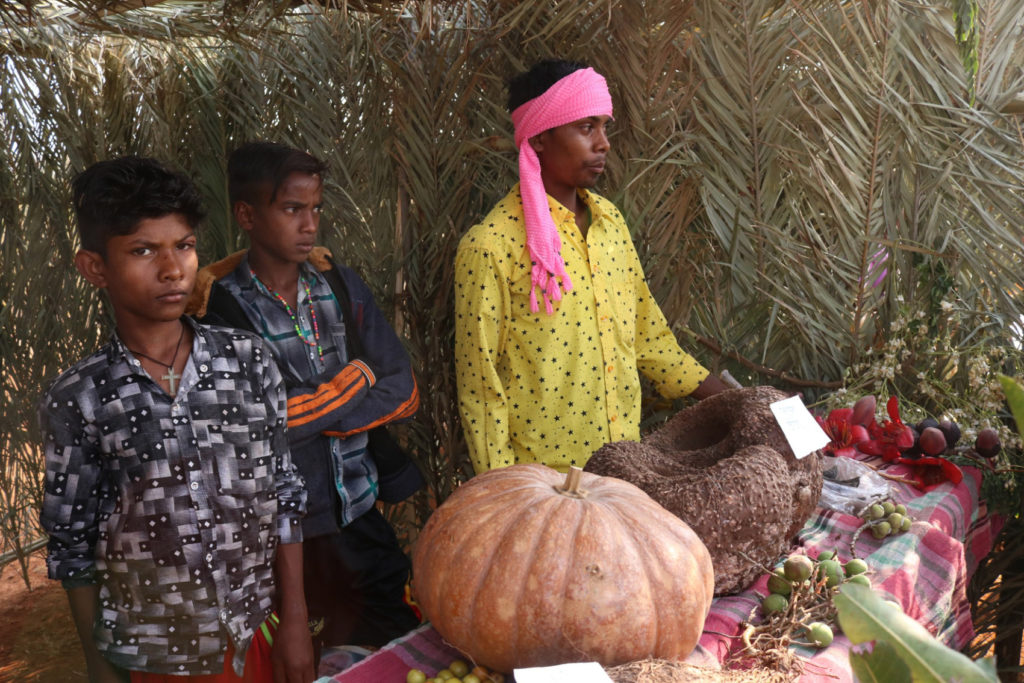
Traditional tools, agricultural implements, utensils and tools for grinding and pounding crops were also on display with the village representatives demonstrating how they are used.
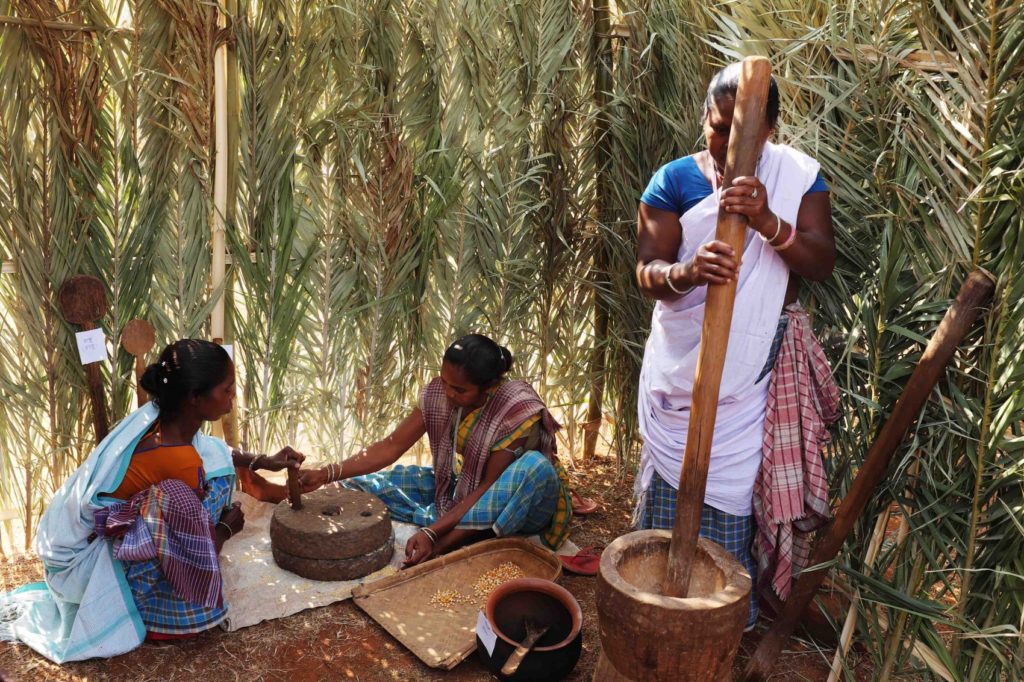
Ramnath Malto, a village elder from Makhni Pahar, shared his experiences about how their area had changed from the time he was young. He said that they are currently facing severe water scarcity which has negatively impacted their agricultural productivity and the cultivation of traditional crops like Kosre, Ture and Gangi (Makka or Maize). He remembers how when he was a child they used to have bumper harvests of Makka but now due poor monsoons and water scarcity the crop productivity has declined and they are forced to depend on Government/PDS rice for survival. Ramnath remembered how in his youth he used to consume a variety of wild tubers and leafy vegetables. He shared that while the forest near his village is still good there has been a decline in quality compared to the past. The use of wild food has also declined and mostly those who reside on the hills still consume a variety of wild and uncultivated food. He also shared his knowledge of a number of herbs and roots used for medicinal purposes like Kurchi which is used to combat urinary infections.
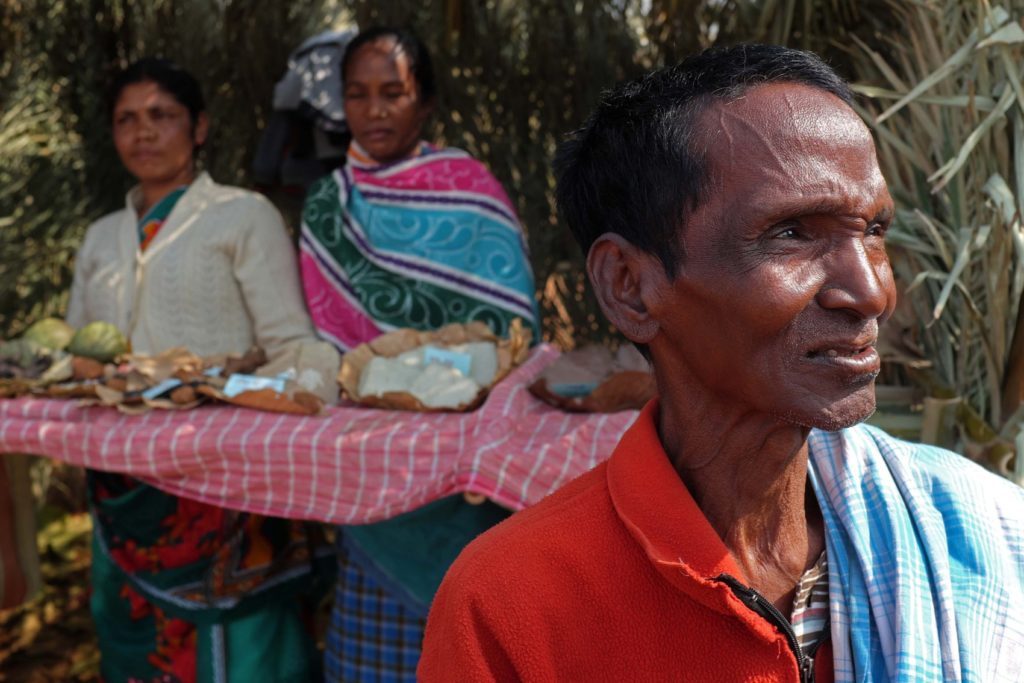
Over 400 men, women and children from around 12 surrounding villages attended the festival. The audience was entertained by several traditional Paharia Dance troupes comprising women, men and children from Bada Pokharia and a number of surrounding villages performed a variety of traditional Paharia dances with great energy and vitality which only intensified with the setting sun. The dances included:
- Bhoj Nalle – This is a Paharia dance performed during funeral rites carried out 40 days after a death in the village. A man dressed in white with a baton leads while men and women follow behind him and move in a circle accompanied by men playing dholaks (a small two headed drum). Several dance troupes from Makhni Pahar, Ranbaihar, Kairodali, Jhapri, Gad Pahari, Bada Pokharia and Jalukundi were simultaneously performing Bhoj Nalle which involved several lines of women crisscrossing each other accompanied by men playing the been.
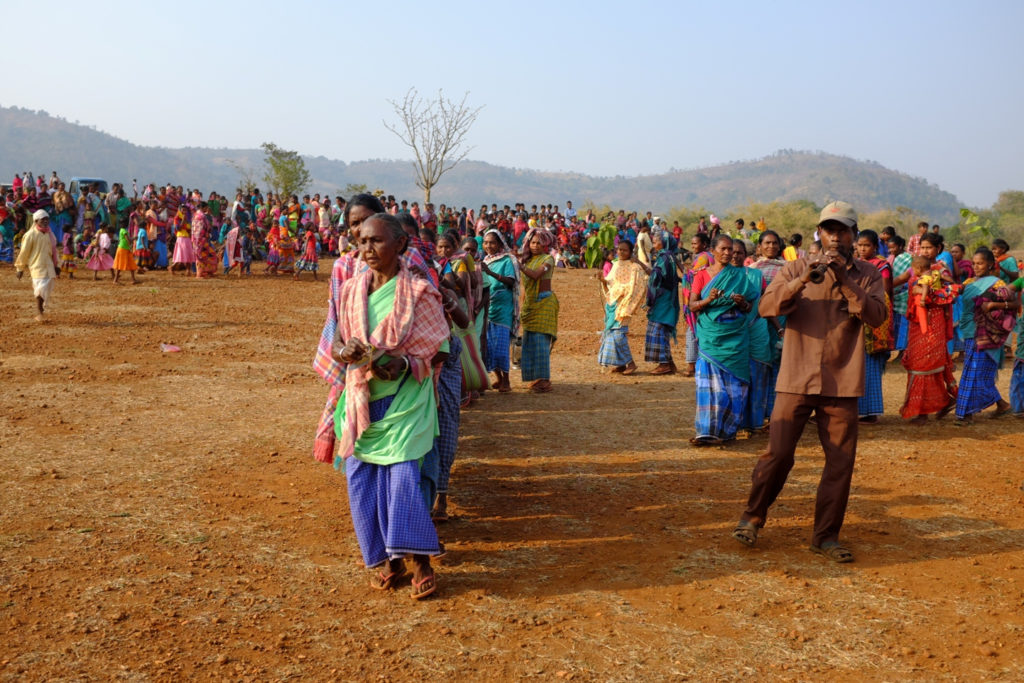
2. Dassain Nalle – This is performed during the time of Dusherra or Dasmi Pije, by Paharia men dressed in white kurtas and dhotis, and coloured pagris. They also use black batons and their turbans are decorated with mirrored ornaments. The men of Bada Pokharia performed Dassain Nalle and their adornments included Peacock feathers.
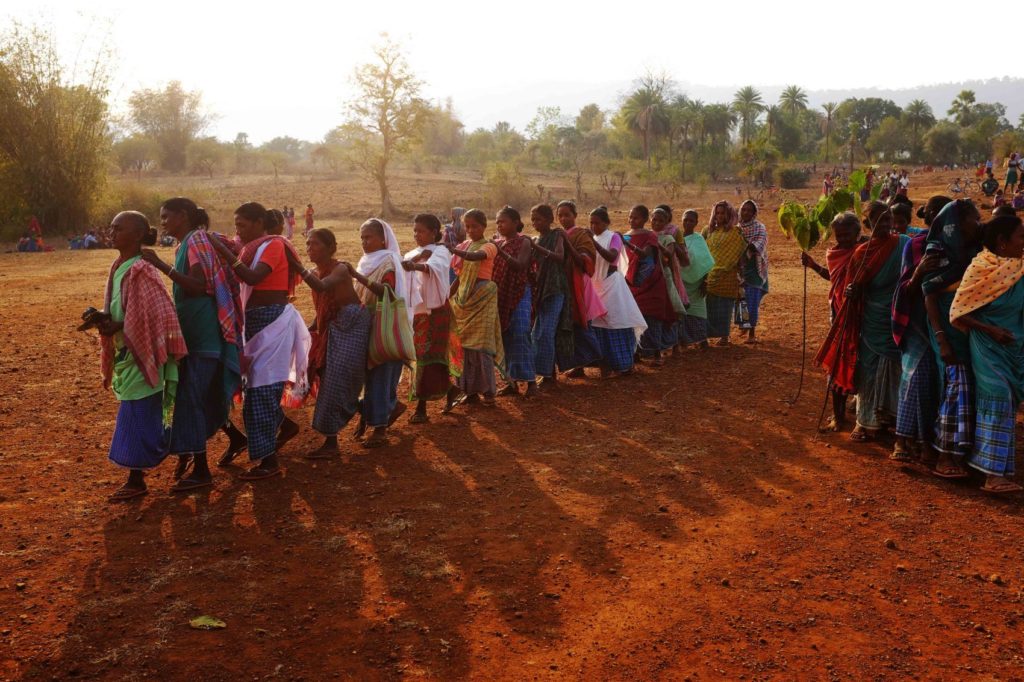
3. Jhari Nalle – is performed along with Bhoj Naach. Women from Bada Pokharia and Chotta Pokharia used bamboo sticks to perform the dance to the accompaniment of traditional musical instruments played by the men.
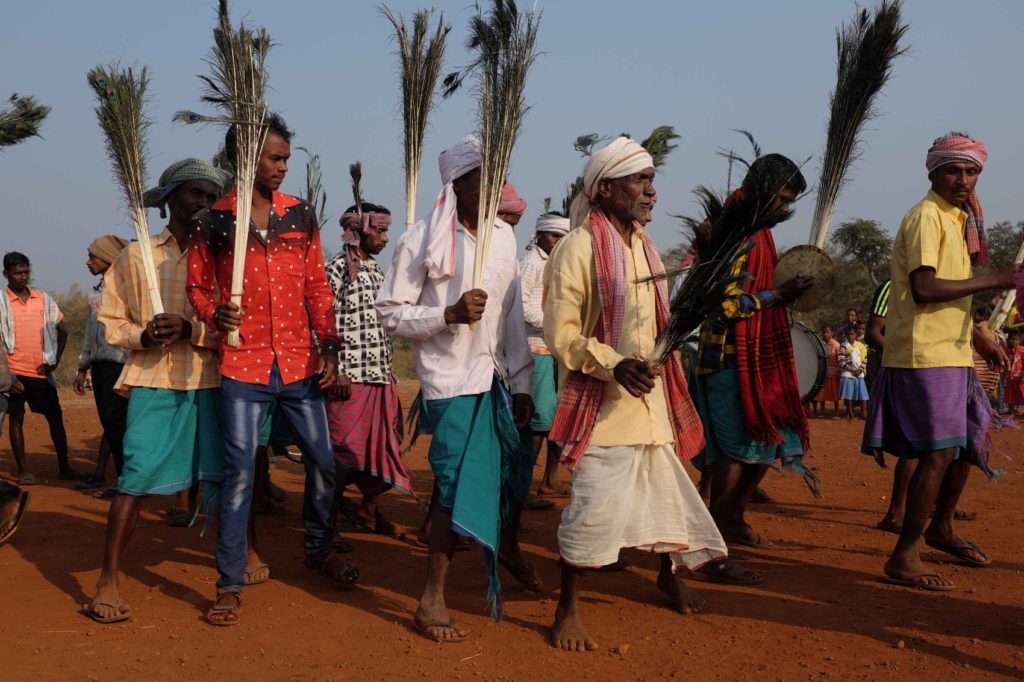
The festival was much appreciated and the villagers felt that future initiatives along these lines are needed to promote greater awareness of the traditional and uncultivated food items of the Paharias and facilitate their revival and protection. The villagers felt that future events should involve greater publicity prior to the program so that more villagers can participate.
